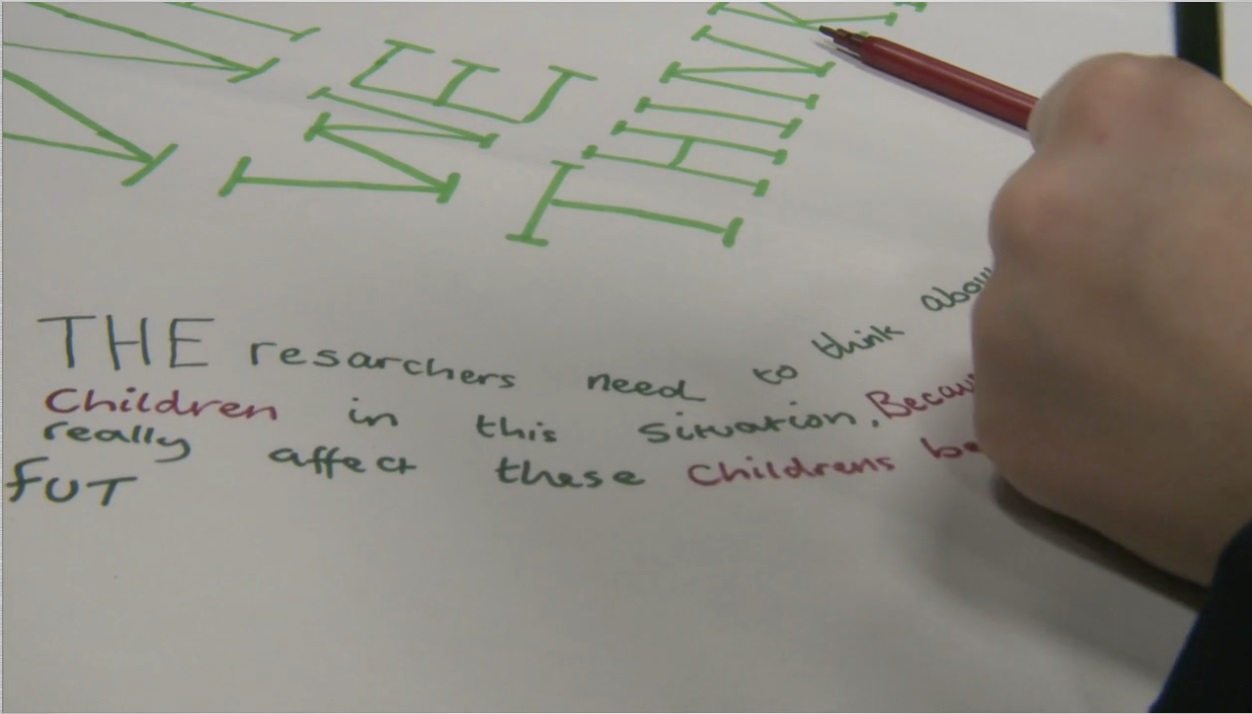News
Launch of films and findings on involvement of children and young people in clinical research ethics
The Council has launched two films as part of a project in support of its current work on children and clinical research.

The project – a collaboration with researchers from the University of Sussex, the University of Nottingham, and the Institute of Education – involved workshops at a junior school, secondary school, and sixth form college in the Brighton area. The aim was to find out how young people see the ethical review process when clinical research is carried out involving children and young people.At each workshop, students were shown a film that features a ‘mock’ adult research ethics committee (REC), chaired by Professor Bobbie Farsides, Chair of the Council’s Working Party on children and clinical research. The REC debated the ethics associated with a fictional clinical research protocol that involved testing a new method of prescribing two different types of medication for severe childhood asthma. The same research protocol was then presented to the students at each school, and their reactions to its contents were filmed both before and after they had been shown the deliberations of the adult REC.The two films, directed by Vivianne Howard of Helter Skelter Media, were screened at a launch event at the Brighton and Sussex Medical School on 25 March. The event was attended by young people from the schools that participated in the workshops, along with their parents and teachers.
Watch the films
You can watch the films on our website here or on youtube:ConclusionsA number of themes emerged from the project and are presented in the films:
- “Keeping it personal”: Participants highlighted the importance of ensuring that children and young people are meaningfully engaged in the development, design and review of research. Researchers should pay attention to the circumstances and feelings of individual children, and build relationships of trust and respect.
- Being fully informed: It was considered important that researchers consider the most appropriate way to inform and communicate with children and young people – as well as their parents – before, during, and after research.
- Valuing contributions: The young people were generally more comfortable with expressions of gratitude after participation in research, than with a promise of reward as an incentive to participate.
The findings of this project are summarised in a report written by Dr Grace Spencer (University of Nottingham), Dr Janet Boddy (University of Sussex), and Dr Rebecca Rees (Institute of Education, University of London), with support from Nuffield Council staff.Download the report “What we think about what adults think”: Young people’s perspectives on ethics review of clinical research with children"
Share